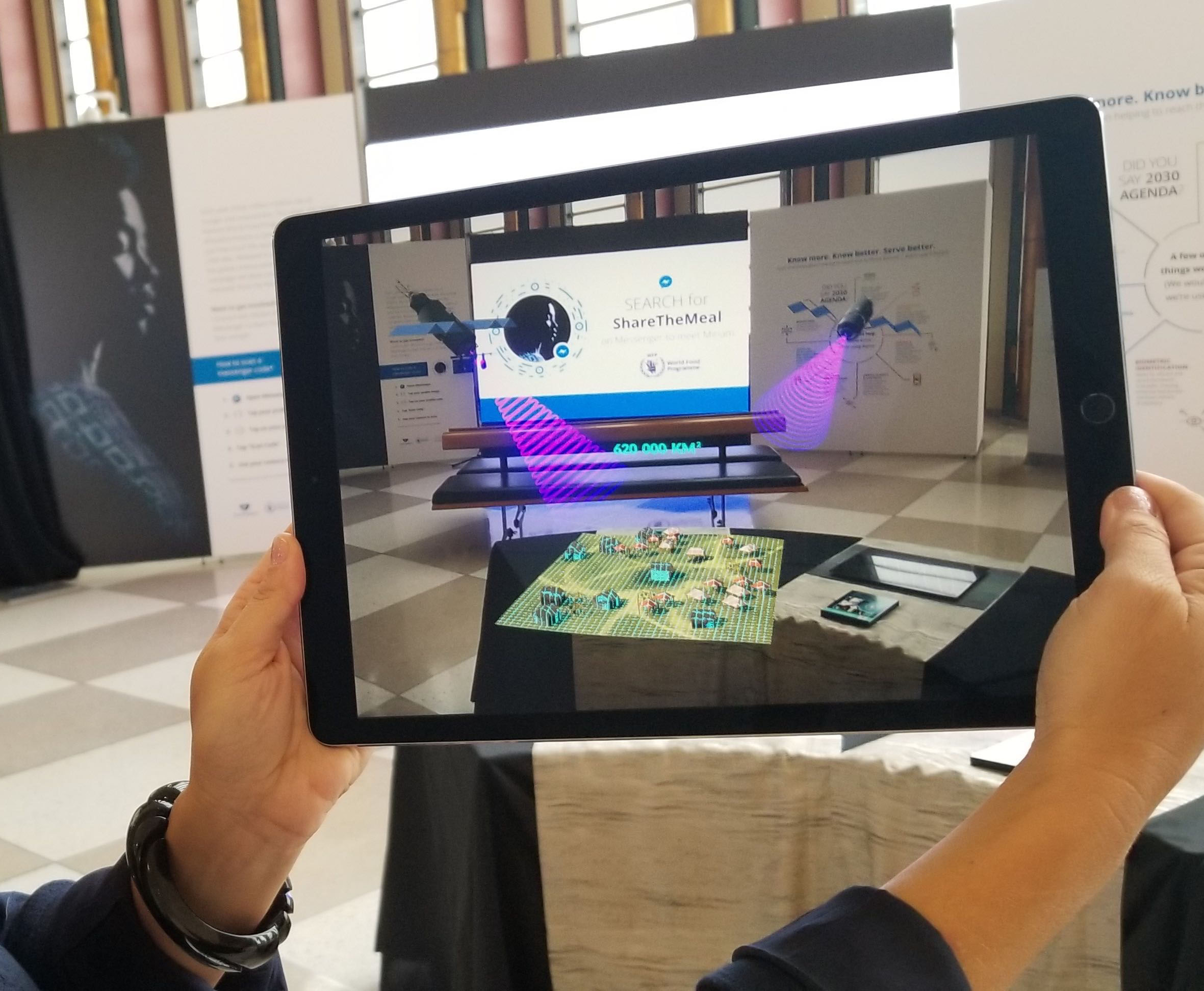Since January 2015, the United Nations Agencies have used the power of virtual reality to inspire viewers towards increased empathy, action and positive social change. High tech headsets and innovative storytelling techniques immerse viewers in the everyday realities of those living through the most complex development challenges.
At the 73rd UN General Assembly in September 2018, The World Food Programme debuted a new Augmented Reality Project. It is the first ever produced by the UN, and featured real life stories of aid beneficiaries, workers and partners who are improving the WFP’s humanitarian aid response through the incorporation of data, technology and innovation.
As part of the “Feed Our Future: Tech and the End of Hunger” interactive exhibit, the UN showcased their groundbreaking and transformative approach to delivering humanitarian aid, building climate resilience, and improving food security through data, technology and innovation. It acquainted delegates with the extraordinary efforts of the UN and partners to mitigate the effects of conflict and hunger.
Leveraging cutting-edge communications to contextualize some of the world’s most pressing challenges through real life stories, installations include the first AR experience ever produced and displayed at the UN, a 360’ virtual reality cinema, a new global cinema ad campaign with an associated Facebook messenger bot, impactful videos, and a hydroponic display to help ensure no one is left behind while achieving the Sustainable Development Goals by 2030. The exhibit was produced and curated by the World Food Programme in partnership with UN Global Pulse, the Global Partnership for Sustainable Development Data.
Issa PR launched UN WFP’s AR campaign through a global exclusive with Fortune Magazine which broke on World Food Day on October 16. Fortune Magazine has nearly 8 million unique users, per month.
United Nations World Food Programme is saving lives in emergencies and changing lives for millions through sustainable development. WFP works in more than 80 countries around the world, feeding people caught in conflict and disasters, and laying the foundations for a better future.
